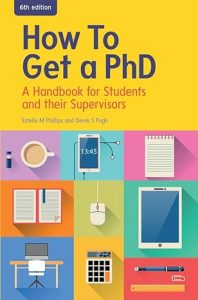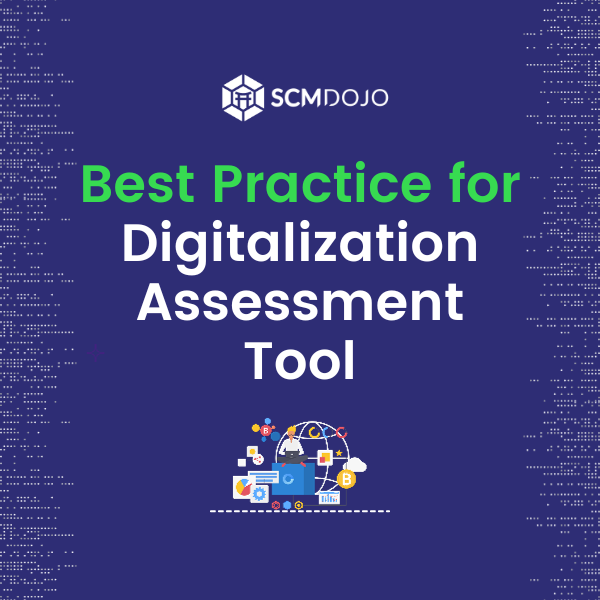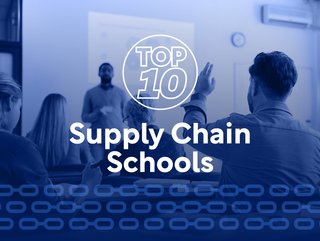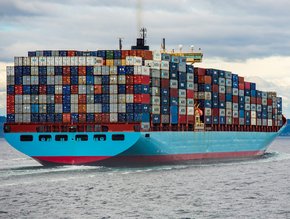Theses - Supply Chain 2020 Project
Back to the main SC2020 page
Since its launch in 2004, a large number of masters theses, as well as a few doctoral theses, have been conducted as part of the SC2020 Project, in centers from the SCALE Network. An exhaustive list of these theses, as well as links to access them, are presented here.

Doctoral Theses at MIT
Title: Effect of scenario planning on field experts' judgment of long-range investment decisions . Author: Phadnis, Shardul. Advisors: Yossi Sheffi, Chris Caplice and Mahender Singh. Year: 2012. Program: Doctoral Thesis, Engineering Systems Division, Massachusetts Institute of Technology. URI: http://hdl.handle.net/1721.1/96020
Title: A methodology to capture, evaluate and reformulate a firm's supply chain strategy as a conceptual system . Author: Roberto Perez-Franco. Advisors: Yossi Sheffi and Mahender Singh. Year: 2010. Program: Doctoral Thesis, Engineering Systems Division, Massachusetts Institute of Technology. URI: http://hdl.handle.net/1721.1/62761
Title: Dynamic Retail Assortment Models with Demand Learning for Seasonal Consumer Goods . Author: Felipe Caro. Advisor: Jérémie Gallien. Year: 2005. Program: Doctoral Thesis, Sloan School of Management, Massachusetts Institute of Technology. URI: http://hdl.handle.net/1721.1/33415
Master Theses at MIT
Title: A Qualitative Mapping and Evaluation of an Aerospace Supply Chain Strategy . Author: Jonathan Hung and Nicholas Pierce. Advisor: Roberto Perez-Franco. Year: 2011. Program: M. Eng. in Logistics, Engineering Systems Division, Massachusetts Institute of Technology. URL: CTL Publication Link
Title: Redefining organizational boundaries : building an aware and agile organization by enabling new social interactions . Author: Benjamin Maupetit. Advisor: Mahender Singh. Year: 2009. Program: S.M. in Technology and Policy Program, Engineering Systems Division, Massachusetts Institute of Technology. URI: http://hdl.handle.net/1721.1/52754
Title: Evolutionary supply chain risk management: transforming culture for sustainable competitive advantage . Author: Romain Lévy. Advisor: Mahender Singh. Year: 2008. Program: M. Eng. in Logistics and S.M. in Technology and Policy Program, Engineering Systems Division, Massachusetts Institute of Technology. URI: http://hdl.handle.net/1721.1/42928
Title: Exploring the future of the U.S. pharmaceutical industry : a supply chain perspective . Author: Loïc Lagarde. Advisor: Yossi Sheffi and Mahender Singh. Year: 2007. Program: S.M. in Technology and Policy Program, Engineering Systems Division, Massachusetts Institute of Technology. URI: http://hdl.handle.net/1721.1/40294
Title: The Supply Chain Response to Environmental Pressures . Author: Julie Rebecca Paquette. Advisor: Randolph E. Kirchain. Year: 2006. Program: S.M. in Technology and Policy Program, Engineering Systems Division, Massachusetts Institute of Technology. URI: http://hdl.handle.net/1721.1/34530
Title: Demand Management: A Cross-Industry Analysis of Supply-Demand Planning . Author: Peng Kuan Tan. Advisor: Lawrence Lapide. Year: 2006. Program: M. Eng. in Logistics, Engineering Systems Division, Massachusetts Institute of Technology. URI: http://hdl.handle.net/1721.1/36139
Title: Order Promising/Fulfillment and Customer/Channel Collaboration in Supply Chain Management . Author: Yimin An and Samuel Srethapakdi. Advisor: Mahender Singh. Year: 2006. Program: M. Eng. in Logistics, Engineering Systems Division, Massachusetts Institute of Technology. URI: http://hdl.handle.net/1721.1/36148
Title: Analysis of Sourcing & Procurment Practices: A Cross Industry Framework . Author: Ioannis G. Koliousis. Advisor: Edgar Blanco. Year: 2006. Program: M. Eng. in Logistics, Engineering Systems Division, Massachusetts Institute of Technology. URI: http://hdl.handle.net/1721.1/36143
Title: Analysis of Supplier Involvement in New Product Development and Launch . Author: Herman Alex Kurapov. Advisor: Chris Caplice. Year: 2006. Program: M. Eng. in Logistics, Engineering Systems Division, Massachusetts Institute of Technology. URI: http://hdl.handle.net/1721.1/35614
Title: A Cross Industry Analysis and Framework of Aftermarket Products and Services . Author: Petros Englezos. Advisor: Lawrence Lapide. Year: 2006. Program: M. Eng. in Logistics, Engineering Systems Division, Massachusetts Institute of Technology. URI: http://hdl.handle.net/1721.1/35539
Title: An Examination of Boeing’s Supply Chain Management Practices within the Context of the Global Aerospace Industry . Author: Daglar Cizmeic. Advisor: Kirkor Bozdogan. Year: 2005. Program: M. Eng. in Logistics, Engineering Systems Division, Massachusetts Institute of Technology. URI: http://hdl.handle.net/1721.1/33315
Title: An Exploration of of Supply Chain Management Practices in the Aerospace Industry and in Rolls-Royce . Author: Mohit Tiwari. Advisor: Kirkor Bozdogan. Year: 2005. Program: M. Eng. in Logistics, Engineering Systems Division, Massachusetts Institute of Technology. URI: http://hdl.handle.net/1721.1/33373
Title: Supply Chain Strategies in the Apparel Industry: The Case of Victoria’s Secret . Author: Sumit Kumar. Advisors: Sharon Novak and Lawrence Lapide. Year: 2005. Program: M. Eng. in Logistics, Engineering Systems Division, Massachusetts Institute of Technology. URI: http://hdl.handle.net/1721.1/33324
Title: The Dynamics of Supply Chains in the Automotive Industry . Author: Niklas Braese. Advisor: Lawrence Lapide. Year: 2005. Program: M. Eng. in Logistics, Engineering Systems Division, Massachusetts Institute of Technology. URI: http://hdl.handle.net/1721.1/33312
Title: The Pharmaceutical Supply Chain: A Diagnosis of the State-of-the-Art . Author: Mahender Singh. Advisor: Charles H. Fine. Year: 2005. Program: M. Eng. in Logistics, Engineering Systems Division, Massachusetts Institute of Technology. URI: http://hdl.handle.net/1721.1/33354
Title: Supply chain practices in the petroleum downstream . Author: Santos Manzano, Fidel. Advisor: Lawrence Lapide. Year: 2005. Program: M. Eng. in Logistics, Engineering Systems Division, Massachusetts Institute of Technology. URI: http://hdl.handle.net/1721.1/33345
Title: An analysis of current supply chain best practices in the retail industry with case studies of Wal-Mart and Amazon.com . Author: Chiles, Colby Ronald; Dau, Marguarette Thi. Advisor: Gabriel R. Bitran. Year: 2005. Program: M. Eng. in Logistics, Engineering Systems Division, Massachusetts Institute of Technology. URI: http://hdl.handle.net/1721.1/33314
Title: Framework for the study of governance in the supply networks : Wal-mart : "Enlightened Despot" model . Author: De Graeve, Denis. Advisor: Gabriel R. Bitran. Year: 2004. Program: S.M. Technology and Policy Program, Engineering Systems Division, Massachusetts Institute of Technology. URI: http://hdl.handle.net/1721.1/28504
Title: An Evaluation of Scenario Planning for Supply Chain Design . Author: Yishai Boasson. Advisor: Yossi Sheffi. Year: 2004. Program: M. Eng. in Logistics, Engineering Systems Division, Massachusetts Institute of Technology. URI: http://hdl.handle.net/1721.1/28504
Master Theses at ZLC
Title: Analysis of Supply Chains in the Consumer Packaged Goods Industry . Author: Marc-Elliott Finkelstein. Advisor: Paul M. Thompson. Year: 2005. Program: M. Eng. MIT-Zaragoza International Logistics Program, Zaragoza Logistics Center. Link: Download .
Title: Supply Chain Excellence in the Pharmaceutical Industry: Novartis– A Case Study . Author: Gourav Narayan Mukherjee. Advisor: Prashant Yadav. Year: 2005. Program: M. Eng. MIT-Zaragoza International Logistics Program, Zaragoza Logistics Center. Link: Download .
Title: Excellent Supply Chains In The Oil Industry: Royal Dutch/Shell . Author: Stefan Röthlisberger. Advisor: Prashant Yadav. Year: 2005. Program: M. Eng. in Supply Chain Management and Logistics, MIT-Zaragoza International Logistics Program, Zaragoza Logistics Center. Link: Download .
Title: Supply Chain Excellence in the Retail Industry: METRO AG – A Case Study . Author: Manuela Schranz-Whitaker. Advisor: Paul M. Thompson. Year: 2005. Program: M. Eng. in Supply Chain Management and Logistics, MIT-Zaragoza International Logistics Program, Zaragoza Logistics Center. Link: Download .
Title: SC2020: Toyota Production System & Supply Chain. Author: Macharia Brown. Advisor: Prashant Yadav. Year: 2005. Program: M. Eng. in Supply Chain Management and Logistics, MIT-Zaragoza International Logistics Program, Zaragoza Logistics Center. Link: Download .
Title: Excellence In European Apparel Supply Chains: Zara. Author: Phyllis Chu. Advisor: Paul Thompson. Year: 2005. Program: M. Eng. in Supply Chain Management and Logistics, MIT-Zaragoza International Logistics Program, Zaragoza Logistics Center. Link: Download .

Supply Chain Management Thesis Topics- Top 40 Ideas
- Career Advice
One of the most frequently asked questions from SCMDOJO followers is, I am doing a Supply Chain Management Master from Europe, the UK or the USA, and I need some Master Thesis ideas in Supply Chain.
Key academic research areas in SCM are offering robust and implementable supply chain management thesis that are transforming worldwide trends. The increasing strength of global Supply Chain Management (SCM) is one functional area that shows several students are seeking a good start, especially in solving significant problems in the form of Masters and PhD thesis .
Nevertheless, with the changing trends in the industry, some students are likely to struggle with the early stages of academic writing. A significant reason for this problem is usually down to a lack of ideas or facing new topics with low research activity.
Old Industries and New Industries
The recent pattern shifts in academia, from the traditional research approach to other conventional methods, is taking a more student-centred view. Most of the supply chain management thesis is crafted by students, including dissertation, topic creation, research, and more with help of their supervisors.
With new industries, like Amazon and Apple, transforming old concepts with technological disruption, there are new trends to look out for to help narrow your supply chain management thesis.
The 7 Powerful Supply Chain Trends (I also dubbed “Supply Chain 7.0”) have the potential to become a powerful influence over time. These trends include Augmented reality (AR), Big Data, Gamification of the supply chain, moving the supply chain to the “Cloud,” and the Internet of Things (IoT) – Industry 4.0. Also, Artificial Intelligence (AI) and machine learning in the supply chain, alongside 3D Printing, are now needed to support the product life cycle.
Forbes also highlights the key 2020 Supply Chain Technology Trends that are receiving lots of buzz in Supply Chain Management. In this regard, students seeking top-notch research areas for supply chain management thesis can consider new trends to help create adequate research content.
40 Supply Chain Management Thesis Topics for 2024
On these premises, any supply chain management thesis should be comprehensive. There several topics and areas to consider, and below are 40 Supply Chain Management Thesis Topics for 2020 that students can do research on towards an excellent postgraduate study in SCM.
Digital Transformation
- Digital Transformation Key Attributes; Challenges; enablers & Success Factors.
- Smart Government Initiatives: How Governments are Driving Digital Change.
- Digital Leadership is linking to Virtual Teams or Self Organised Teams (Agile PM).
- Did COVID 19 impact the implementation of digital transformation?
- Cross-functional collaboration in the decision-making process.
- The value of data and interdependencies in decision-making.
- Machine learning techniques in supply chain management.
- Blockchain Technology in Supply Chain Transparency: Evaluating the Impact on Traceability and Trust.
- The Role of Artificial Intelligence in Predictive Analytics for Inventory Management.
- Sustainability in Digital Supply Chain Management: A Comparative Analysis of Environmental Impact.
- Digital Transformation in Warehouse Management: Enhancing Efficiency and Customer Satisfaction
Sustainable Project Management (SPM)
- Can apply the SPM model or any of its dimensions to any type of project
- Can Blockchain help with Sustainable Project Management?
- Factors affecting the application of an efficient supply management system.
IoT- Industry 4.0 and Big Data
- Application of IoT in Logistics – Challenges; enablers & Success Factors
- The practicability of intertwined supply networks with IoT.
- Implementation of IoT in 3PL/4PL Industry – Challenges; enablers & Success Factors
- Big data and impact in DDMRP
- Evaluation of technology use in modern supply chain management.
- The extension of supply chain resilience through Industry 4.0
- The Impact of Industry 4.0 on Supply Chain Management.
- Implementation of E-logistics in Supply Chain Operations.
- Predictive Maintenance Strategies in Industry 4.0-enabled Supply Chains: A Case Study Approach
- Optimizing Supply Chain Decision-Making through Real-time Big Data Analytics
- Cybersecurity Challenges in IoT-Enabled Supply Chains: A Comprehensive Analysis.
Operations and Supply Chain Management
- Risk Evaluation and Management involved in a supply chain
- Partnerships Perspective in Supply Chain Management
- Assessing Supply Chain Risk Management Capabilities
- Implementation of Green Supply Chain Management Practices
- Supply Chain Management Practices and Supply Chain Performance Effectiveness
- The Impact of Supply Chain Management Practices on the Overall Performance of the org
- The Influence of Environmental Management Practices and Supply Chain Integration on Technological Innovation Performance
- The Relationship between Total Quality Management Practices and their Effects on Firm Performance
- Level of Commitment to Top Management regarding the TQM Implementation
- Impact of Mobility Solutions (transportation / latest technologies) on logistics.
- Study on the roles of supply chain management in corporate outsourcing.
- Evaluating strategies for cost reduction in SCM relating to exports and imports.
- Circular Economy Practices in Supply Chain Management: A Case Study Approach
- Demand Forecasting in Omnichannel Retail: A Comparative Analysis of Forecasting Models.
- Ethical and Sustainable Procurement Practices: An Examination of Implementation Challenges and Benefits.
Watch my YouTube vlog explaining more on Top 10 HOT TOPICS for Supply Chain Research for Master Thesis or Ph.D. Thesis.
Get My PhD Thesis- Supplier Development Framework
The supply chain systems of today are more likely to see massive changes technologically in the coming years. Some selected supply chain management thesis topics may face limited data or access to real-time data in making proper research and forecast, including seasonality and trends. So, due diligence is necessary to ensure you not only pick an exciting supply chain management thesis, but you also have sufficient access to data, studies, and materials useful in such an area. The impact of these trends alongside technological advancement in the selected areas would certainly help your thesis stand out and unique.
If are looking for more articles in the education category, you can visit this page
Frequently Asked Questions (FAQ)
What are the emergent research topics in the field of supply chain management.
Blockchain Integration : Exploring the application of blockchain technology to enhance transparency, traceability, and security in supply chains.
Sustainable Supply Chains : Investigating strategies for integrating environmentally friendly practices, ethical sourcing, and social responsibility into supply chain management.
Digital Transformation : Studying the impact of emerging technologies like artificial intelligence, machine learning, and the Internet of Things on optimizing supply chain processes.
Resilience and Risk Managemen t: Analyzing approaches to build resilient supply chains capable of adapting to disruptions, such as pandemics, natural disasters, and geopolitical events.
Circular Economy : Examining supply chain models that minimize waste and promote the reuse, recycling, and repurposing of materials.
Supply Chain Visibility : Researching ways to improve real-time visibility into supply chain activities to enhance decision-making and responsiveness.
Last-Mile Delivery Optimization : Investigating innovative approaches to streamline and optimize the final stages of product delivery to consumers.
Supply Chain Finance : Exploring financial strategies and tools to optimize cash flow and working capital within supply chains.
Collaborative Supply Chains : Studying methods to enhance collaboration and information-sharing among supply chain partners to achieve mutual benefits.
E-commerce Integration : Examining the challenges and opportunities associated with integrating e-commerce platforms into traditional supply chain models.
What are the 4 areas of supply chain management?
What is the primary goal of the supply chain.
The main goal of a supply chain is to efficiently and effectively manage the flow of products or services from the point of origin to the point of consumption. This involves optimizing processes from procurement and production to distribution and delivery. The overarching objective is to meet customer demands with the right products, in the right quantity, at the right time, while minimizing costs and maximizing overall supply chain performance.
What is the difference between supply chain and supply chain management?
The term “supply chain” refers to the entire network of entities and activities involved in the creation and delivery of a product or service, encompassing suppliers, manufacturers, distributors, retailers, and customers. “Supply chain management,” on the other hand, is the strategic coordination and oversight of these interconnected processes to optimize efficiency, reduce costs, and enhance overall performance. While the supply chain is the broader concept, supply chain management specifically involves the planning, execution, and control of various elements within that network to achieve business objectives.
Recommended Books
How to get a phd: a handbook for students and their supervisors.

How to Get a PhD: How to Set Yourself Up for Success in the First 12 Months (Getting My PhD)

About the Author- Dr Muddassir Ahmed
Dr MuddassirAhmed is the Founder & CEO of SCMDOJO. He is a global speaker , vlogger and supply chain industry expert with 17 years of experience in the Manufacturing Industry in the UK, Europe, the Middle East and South East Asia in various Supply Chain leadership roles. Dr. Muddassir has received a PhD in Management Science from Lancaster University Management School. Muddassir is a Six Sigma black belt and founded the leading supply chain platform SCMDOJO to enable supply chain professionals and teams to thrive by providing best-in-class knowledge content, tools and access to experts.
You can follow him on LinkedIn , Facebook , Twitter or Instagram
- Research & Improvement

Free Supply Chain Digitalization Assessment
- Measure your organization's current digitalization readiness - 63 survey questions across six categories to achieve the objective

Faculty of Social Sciences, Economics, and Business Administration
- Chair of Supply Chain Management
- University of bamberg
- Social Sciences, Economics and Business Administration
- Subjects and Institutes
- Business Administration
Final Theses
The requirements for writing a thesis at the chair can be found in the examination guidelines applicable to your studies.
The preparation of a Bachelor's or Master's thesis at the also requires that at least one of the Bachelor's or Master's courses offered at the chair and the respective seminar "Academic methods for preparation of the Bachelor's thesis" or "Academic methods for preparation of the Master’s thesis" are attended.
Seminars "Academic methods for preparation of the Bachelor's thesis" and "Academic methods for preparation of the Master’s thesis"
When writing a Bachelor's or Master's theses, certain content-related and formal requirements must be considered. The respective seminar provides an overview of these requirements applicable at our chair.
Participation in the seminar is mandatory for writing a thesis at the chair. As the contents of the seminar may vary from time to time and in order to grant equal rights to all students, it is predefined that the respective seminar must be attended in the same semester in which the thesis is written. The seminars will take place on different appointments in the first weeks of the semester and will probably contain the following contents (subject to change): Practical applications (literature analysis, citation, presentation).
You can find the dates at UnivIS.
Application Process
To write a thesis at the Chair for Supply Chain Management, an application via our web form is required.
Application deadlines :
Deadline for thesis in summer semester: 28.02.
Deadline for thesis in winter semester: 30.09 .
Please also consider current announcements of the chair. The application automatically represents a registration for the respective seminar.
If the number of applications exceeds the supervision capacity of the chair, the chair reserves the right to make a qualitative selection of the applications.
In case of an initiative topic or a practical thesis in cooperation with a company, the topic must be presented in a 2-3 page exposé (continuous text, excluding cover sheet and bibliography). An initiative topic or a practical thesis must be in line with a concrete research topic of the chair or with the research focus of one of the research associates (see here).
The exposé should include the following:
- 1) Introduction and explanation of how the proposed topic fits into a research focus of the chair (approx. 0.5 pages).
- 2) Possible theoretical foundations of the topic (approx. 0.5 - 1 page)
- 3) Methodology/approach to answer the research question (approx. 0.5 - 1 page)
- 4) Expected results for science and practice (approx. 0.5 pages)
A topic-related decision on the supervision of an initiative topic or a practical thesis is made. Depending on the specific topic, a supervisor for the thesis will be assigned accordingly and communicated before the seminar.
A confirmation of supervision will be given after the application deadline. All further information will be communicated in the seminar.
Assignment of topics and working process
Basically, a student applies with his/ her thesis application for the preparation of a pre-defined, initiative or practical topic at the Chair for SCM.
Topics, which are proposed by the chair, are based on the specific research topics of the chair or on the individual research focus of the research associates (see here).
In case of an initiative topic or a practical thesis in cooperation with a company, the topic of the thesis has to be presented in a 2-3 page exposé. Further information can be found under the issue "Application”.
A topic-related decision is made about the supervision of a practical thesis or an initiative topic. Depending on the choice of topic, the supervisor for the thesis is assigned accordingly and communicated before the seminar.
After the selection process, students receive an acceptance or rejection notification to write a thesis at the chair. An invitation to attend the seminar “Academic methods for preparation of the Bachelor’s or Master’s thesis” goes hand in hand with an acceptance notification.
Topics, which are proposed by the chair, will be presented on the first date of the seminar. After attending the first date of the seminar, students should send a preference list (topic preference 1, topic preference 2, topic preference 3) via mail to abschlussarbeiten.bwl-scm(at)uni-bamberg.de, so that the proposed topics can be assigned among the students. With the assignment, the respective supervisor will be announced at the same time. The chair will try to assign you a topic according to your preferences, but in rare exceptional cases you may be assigned to a topic outside your preferences. Students working on a practical thesis with a company do not need to send a topic preference list. You will also be notified of your supervisor in the assignments process.
After attending the 1st appointment of the seminar " “Academic methods for preparation of the Bachelor’s or Master’s thesis”, the final theses are registered with the examination office within a fixed period of time (approx. 4 weeks). In principle, students who would like to write their thesis at the chair have to take the seminar in the same semester. The respective supervisor decides on the final date of registration. The time required to complete the Bachelor's thesis is usually two months (information provided by the examination office should be given priority). After submission of the Bachelor thesis, a disputation takes place in which the results of the thesis are presented in approx. 20 minutes and a Q&A session of approx. 10 minutes takes place. A Master's thesis takes four months to complete (information from the examinations office should be given priority). Towards the middle of the working time, a colloquium takes place (ca. 20 min.), in which the methodology, first results and the further procedure are presented. Finally, there will be a Q&A session of about 10 minutes.
In case of any questions, please do not hesitate to contact: abschlussarbeiten.bwl-scm(at)uni-bamberg.de
Please note the application form is only available in German.
Please prefer to use chrome or firefox to fill out the form..
Application via web form
Find Info For
- Current Students
- Prospective Students
- Research and Partnerships
- Entrepreneurship and Commercialization
Quick Links
- Current issue
- Faculty and Staff
- Purdue Pursuits
- Photo Galleries
- Submit News
March 19, 2024
Supply chain undergraduate program in Daniels School of Business focuses on putting principles to practice

About this series: This story is part of an ongoing Purdue Today series highlighting programs ranked in the Top 10 or Top 10 th percentile among our peers nationally, demonstrating the university’s persistent pursuit of excellence, innovation and transformative learning.
Mitchell Walbolt found his calling in, of all places, a pizza joint. As a high schooler, Walbolt worked at the Pizza House in his hometown of Cicero, Indiana, where he became interested in the operations aspect of the kitchen.
After starting his academic career in accounting at Purdue’s Mitchell E. Daniels, Jr. School of Business, he switched to the Supply Chain, Information and Analytics program. Following graduation in 2023, he pursued a degree in the Master of Science in Global Supply Management program and expects to graduate in May.
“I chose Purdue because of its STEM and analytics strengths,” Walbolt says. “Then partly because of my experience at the pizza shop, and partly because I was fascinated with the issues that took place during the pandemic, I decided supply chain would be a good area for me to study.”
The Daniels School ranked No. 8 in production/operations management and No. 10 in supply chain management/logistics in the U.S. News & World Report undergraduate rankings last fall. The degree program is now known as Supply Chain and Operations Management (SCOM), a change made in 2022 to focus on better understanding of the supply chain process.
Additional information
- U.S. News & World Report Undergraduate Rankings
- Purdue Supply Chain and Operations Management
- Daniels School of Business Rankings
- Daniels School makes giant leap in undergraduate rankings
- Mitchell E. Daniels, Jr. School of Business
Olga Senicheva, clinical assistant professor of management and academic director of the undergraduate SCOM program, says experiential learning is the key ingredient. “Every course has a project attached to it,” Senicheva says. “It’s important for the students to be able to take what they learn in the classroom and immediately apply it to a real-world situation.”
Corporate partners for course projects include PepsiCo and Indiana-based semitrailer manufacturer Wabash. But for some projects, such as those taught by Senicheva, students must be entrepreneurial and find a local company with which to work, applying not only their technical expertise but social skills as well.
Senicheva says the result is that students ask great questions, both of her and their industry partners. Students also visit local companies to observe logistics operations in real time and network with practitioners to get advice as well as seek internships.
Walbolt has taken advantage of his time at Purdue to intern at several companies. He spent a summer working in operations for GEODIS, focusing on third-party logistics; another at Caterpillar, analyzing supplier performance. Last summer, he was at Tesla in Palo Alto, California, where he globally sourced $8.5 million of PCBAs, or printed circuit board assemblies.
“I really liked Tesla. They’re still a young company that acts like a startup, and their employees are some of the most intelligent people in the world,” says Walbolt, whose favorite class at Purdue was Strategic Sourcing and Procurement with professor Zhan Pang.
A third-generation Boilermaker who earned his undergraduate degree in three years, Walbolt admits part of his reason to pursue a master’s degree is his love of Purdue sports. A regular in the Paint Crew, he never missed a football or basketball game in his time on campus. He also served as a Daniels School Ambassador and was co-director of Old Masters.
Senicheva says students such as Walbolt, who have strong quantitative and analytical skills, are perfect fits for the SCOM program. She adds that women also tend to succeed in the program.
“Supply chain is a broad concept that covers many areas, and it’s largely about coordination and building relationships,” Senicheva says. “Women seem to have a natural ability to do that, and they’re very good at negotiation. It’s a great field to enter.”
Writer: Tim Newton, [email protected]
Faculty-Staff News
Communication.
- OneCampus Portal
- Brightspace
- BoilerConnect
- Human Resources
- Colleges and Schools
Info for Staff
- Purdue Moves
- Board of Trustees
- University Senate
- Center for Healthy Living
- Information Technology
- Ethics & Compliance
- Campus Disruptions
Purdue University, 610 Purdue Mall, West Lafayette, IN 47907, (765) 494-4600
© 2015-24 Purdue University | An equal access/equal opportunity university | Copyright Complaints | Maintained by Office of Strategic Communications
Trouble with this page? Disability-related accessibility issue? Please contact News Service at [email protected] .
Academia.edu no longer supports Internet Explorer.
To browse Academia.edu and the wider internet faster and more securely, please take a few seconds to upgrade your browser .
Enter the email address you signed up with and we'll email you a reset link.
- We're Hiring!
- Help Center

MASTER'S DEGREE THESIS Management of the Supply Chain – Case of Danfoss District Heating Business Area
Related Papers
Mehtab Bokhari
The root cause of the problems plaguing many supply chains is a mismatch between the supply chain strategy and the business strategy. The purpose of this article is firstly to examine supply chain management challenges with specific reference to the South African automotive industry and secondly to suggest a framework to help supply chain managers choose their supply chain strategies. The article is based on a theoretical analytical review of related literature on supply chain strategies. Based on the review of literature, the article articulates that supply chain challenges in the South African automotive industry stem from the external environment, the customers, competition and the automotive industry. The article also contends that the challenges in the supply chain are caused by a mismatch in the application of supply chain strategies. The article concludes by suggesting a framework for chosen supply chain strategies and endeavours to contribute to the debate on differentiating supply chain strategies.
International Journal of …
Rohaizat Baharun
Contemporary …
Dr. Alexanda O . U . Kalu
abdelsalam hamid , صديق تسويق
Purpose –this paper aims to investigate the effects of different dimensions of supply chain management practices (SCMP) on supply chain performance efficiency (SCPE) in the industrial sector in the Sudan. Design/methodology/approach – The study employed the quantitative method where convenience sampling and self-administrated survey questionnaires were sent to 110 manufacturing companies in Sudan. Findings – The empirical results indicate that three of the five dimensions of SCMP had a significant positive effect on supply chain performance efficiency. Moreover, a new dimension was developed in supply chain management practices. Research limitations/implications – This study focuses only on the manufacturing sector. Also the data were only collected from single respondents in an organization. However, being the first study to explore the dimensions of SCMP and how those dimensions relate to supply chain performance efficiency, the study shapes the pathway for future research. Practical implications – The results lighted to SCM practitioners and policy makers on the importance of SCMP to increase the performance of manufacturing industry in terms of supply chain performance efficiency. Originality/value – This study developed framework based on existing theoretical base and employs a new approach to empirically examine the relationship between two important factors, the SCMP and supply chain performance efficiency.
trisiladi supriyanto
Latvian Journal of Physics and Technical Sciences
Artjoms Obusevs
The paper focuses on the application of synchrophasor measurements that present unprecedented benefits compared to SCADA systems in order to facilitate the successful transformation of the Nordic-Baltic-and-European electric power system to operate with large amounts of renewable energy sources and improve situational awareness of the power system. The article describes new functionalities of visualisation tools to estimate a grid inertia level in real time with monitoring results between Nordic and Baltic power systems.
Bollettino di Geofisica Teorica ed Applicata
Fernanda Soto
Top 10: Supply Chain Schools

Institutions around the world are educating the next generation of supply chain talent, while also helping established executives to enhance their already-extensive knowledge.
Here, Supply Chain Digital takes a look at the top 10 supply chain schools.
10. McCombs School of Business
Based at the University of Texas , the McCombs School of Business is highly-regarded for its focus on technology and analytics in the supply chain industry.
Its Supply Chain Management major is designed to prepare students for leadership in this field, examining the total systems approach taken by companies, suppliers and partners to deliver manufactured products and services to the end customer.
McCombs became a standalone school more than a century ago, in 1922, and opened its newest learning facility, the Robert B. Rowling Hall, in 2018.

9. Stanford Graduate School of Business
Founded way back in 1925, the Stanford Graduate School of Business is one of seven schools at Stanford University , California, one of the most prestigious universities in the US and the world.
The high-ranking business school is widely known for its operations and supply chain management curriculum, with a focus on innovation.
Topics vary from the basics, such as defining supply chains, through to inventory, supplier management, performance measurement, industrial applications and tools for analysis.
8. Rotterdam School of Management
As a neighbour of Europe's busiest port, Rotterdam School of Management at Erasmus University is a leader in supply chain management research.
In a nutshell, its year-long Supply Chain Management master’s course offers:
- An integrated approach to supply chain design
- Cutting-edge insights into the application of IT in supply chains
- Intensive contact with the logistics and supply chain management business community
- Wealth of knowledge and expertise in supply chain management
Ultimately, the programme offers a sound basis for careers in logistics improvement project management, consultancy and design.
7. The Wharton School of the University of Pennsylvania
The first of two Pennsylvania-based entries on our list, The Wharton School of the University of Pennsylvania was founded in 1881 – making it one of the oldest institutions of its kind in the world.
Its online Global Supply Chain Management Program lasts for six weeks and is offered by the executive education division of the school, providing a comprehensive understanding of modern-day global supply chain challenges.
Participants are given the opportunity to learn how supply chains have reacted to global stresses and develop an action plan to reimagine the current global supply chain based on identified opportunities for improvement.
6. Cardiff University
Cardiff University ’s offering of supply chain courses is among the very best in Europe and around the world.
Its MSc in Sustainable Supply Chain Management , for example, has a unique focus on sustainability and ethical trading. Participants are assisted in their efforts to become professionals capable of making decisions that consider the full range of economic, social and environmental impacts of supply chains.
Experts draw on academic and consultancy expertise to prepare students for global career opportunities, introducing them to all aspects of procurement, supply and distribution of products.

5. Smeal College of Business
Smeal College of Business at Penn State offers one of the first and largest supply chain programmes in the US.
At the heart of the digital revolution in supply chain management is the college’s Supply Chain & Information Systems (SCIS) department, which stands at the intersection of academia and industry and boasts a team of leading experts in the field.
Scholars adopt a holistic systems approach to the entire supply chain, integrating information, data, and technology for informed decision-making.
However, what truly sets the SCIS department apart is its unique ability to prepare graduates for seamless integration into the industry.
4. Cranfield School of Management
Cranfield School of Management is one of the oldest business schools in Europe and a world leader in management education and research.
Based in the UK about an hour from the outskirts of Greater London, the institution’s Logistics and Supply Chain Management MSc is a top-ranked supply chain master's course.
It has been co-designed alongside senior logistics and supply chain professionals, and is delivered by one of the continent’s largest specialist logistics and supply chain management faculty.
The course is designed to provide postgraduate students with the knowledge and skills required to help them make a significant difference in the global marketplace.
3. Michigan Ross
The Ross School of Business at the University of Michigan offers undergraduate, MBA, Executive MBA, and PhD programmes in business and management.
Courses include Global Supply Chain Management, which is aimed at helping students to understand—among numerous learnings—the following:
- Effective management of end-to-end supply chain
- Key drivers of supply chain performance and their inter-relationships with business strategy and other functions
- The importance of risk management in the extended global supply chain
Masters of Supply Chain Management from Michigan Ross have gone on to land jobs at some of the biggest organisations in the world including Amazon , Deloitte and Microsoft .
With campuses in Europe, Asia, the Middle East and North America, INSEAD bills itself as the ‘business school for the world’.
It offers MBA, executive education and PhD programmes with a focus on global supply chain management.
The five-day Supply Chain Management course teaches executives how to evaluate trade-offs between lean and resilient supply chains in turbulent global environments, integrate sustainability and ESG in supply chain design, and lead successful digital transformations. Participants should either be responsible for, or contribute to, the supply chain decision-making process in their company.
1. MIT Center for Transportation & Logistics
Launched in 1973, the MIT Center for Transportation & Logistics (MIT CTL) is a dynamic, solutions-oriented environment where students, faculty and industry leaders pool their knowledge and experience to advance supply chain education and research.
Its integrated Global Supply Chain and Logistics Excellence (SCALE) Network includes more than 80 researchers and faculty members from multiple disciplines, six centres of excellence and around 1,000 alumni worldwide.
Over the years, MIT CTL has made significant contributions to supply chain and logistics, and has helped numerous companies gain a competitive advantage thanks to its cutting-edge research.
Its master’s and doctoral programs are consistently ranked among the very best in the US.
Check out the latest edition of Supply Chain Magazine and sign up to our global conference series – Procurement and SupplyChain LIVE 2024 .
Supply Chain Digital is a BizClik brand.
- How to Effectively Integrate AI into Transport and Logistics Logistics
- Nestlé's bid to cut Carbon Emissions in its Supply Chain Sustainability
- Gartner Unveils Top Supply Chain Technology Trends for 2024 Technology
- KWE and Volvo: Flying the Flag for Sustainable Aviation Fuel Sustainability
Featured Articles

Gartner Unveils Top Supply Chain Technology Trends for 2024
Gartner, the research and consulting giant, says supply chain tech leaders and CSCOs are set to benefit from numerous exciting advancements in technology …

What the Latest CSDDD Milestone Means for Supply Chains
The corporate sustainability due diligence directive (CSDDD) is aimed at fostering sustainable and responsible corporate behaviour …

Aniebo Etudor from Baker Hughes to speak at P&SC LIVE Dubai
Aniebo Etudor, Executive Director of Supply Chain Operations at Baker Hughes, is set to appear at Procurement & Supply Chain LIVE Dubai …

She is PepsiCo Celebrates the Best of Women in Supply Chain

DHL Unveils Global Connectedness Report for 2024

Alberto Medina, Founder of Telescope at P&SC LIVE Singapore
- Panasonic Connect: Using AI to Solve Logistics Challenges
- Sphera: The Top Risks Impacting Global Supply Chains
- AI 'Must not be Seen as Threat' - Siemens CPO Staubitzer
- IBM: Supply Chain Data is Sustainability 'Blockage'
- Heineken Toasts Success of Supply Chain Transformation
- Share full article
Advertisement
Supported by
Large Grocers Took Advantage of Pandemic Supply Chain Disruptions, F.T.C. Finds
A report found that large firms pressured suppliers to favor them over competitors. It also concluded that some retailers “seem to have used rising costs as an opportunity to further hike prices.”

By Madeleine Ngo
Reporting from Washington
Large grocery retailers took advantage of supply chain disruptions to beat out smaller rivals and protect their profits during the pandemic, according to a report released by the Federal Trade Commission on Thursday.
The report found that some large firms “accelerated and distorted” the effects of supply chain snarls, including by pressuring suppliers to favor them over competitors. Food and beverage retailers also posted strong profits during the height of the pandemic and continue to do so today, casting doubt on assertions that higher grocery prices are simply moving in lock step with retailers’ own rising costs, the authors argued.
“Some firms seem to have used rising costs as an opportunity to further hike prices to increase their profits, and profits remain elevated even as supply chain pressures have eased,” the report read.
The report’s release comes as the F.T.C. cracks down on large grocery retailers. Last month, the commission and several state attorneys general sued to block Kroger from completing its $25 billion acquisition of the grocery chain Albertsons. They argued that the deal would weaken competition and would most likely lead to consumers paying higher costs.
The independent federal agency’s actions have helped bolster the Biden administration’s efforts to address rising prices. In recent weeks, President Biden has taken a tougher stance on grocery chains , accusing them of overcharging shoppers and earning excess profits. Although food prices are now increasing at a slower rate, they surged rapidly in 2022 and have not fallen overall. As a result, the high cost of food has continued to strain many consumers and has posed a political problem for the administration.
Mr. Biden has also tried to tackle the issue by fixating on food companies, denouncing them for reducing the package sizes and portions of some products without lowering prices, a practice commonly called “shrinkflation.” During his State of the Union address this month , Mr. Biden again called on snack companies to put a stop to the practice.
“President Biden knows grocery prices are still too high for hardworking families,” Jon Donenberg, a deputy director at the National Economic Council, said in a statement after the report’s release. “We’re cracking down on corporations that engage in price gouging and deceptive pricing, from food to health care to housing.”
In its report, the F.T.C. concluded that supply chain disruptions did not affect companies equally across the grocery industry. Compared with larger firms, small grocery retailers faced more difficulties getting products during the pandemic.
“The F.T.C.’s report examining U.S. grocery supply chains finds that dominant firms used this moment to come out ahead at the expense of their competitors and the communities they serve,” Lina Khan, the F.T.C. chair, said in a statement.
The report’s findings are partially based on information the F.T.C. obtained from nine large retailers, wholesalers and consumer good suppliers, including Walmart, Amazon, Kroger, C&S Wholesale Grocers, Associated Wholesale Grocers, McLane Company, Procter & Gamble, Tyson Foods and Kraft Heinz. The regulator ordered the companies in late 2021 to turn over “ detailed information ” that would help shed light on the causes behind supply chain snarls and how business practices could have worsened disruptions.
The report’s findings about large firms pressuring suppliers were primarily based on the information the F.T.C. received from those companies. The report did not examine whether those specific companies increased their prices by more or less than their cost increases, but rather looked at general industry data on profits.
“We will continue to operate with the highest ethical standards in collaboration with our partners to maintain the integrity and resilience of our nation’s supply chain,” Alicia Downard, a spokeswoman for McLane, said in a statement.
C&S Wholesale Grocers and Kraft Heinz declined to comment. Amazon, Kroger, Associated Wholesale Grocers, Procter & Gamble and Tyson Foods did not respond to an immediate request for comment.
According to the report, some large firms tried to gain access to scarce products by imposing strict delivery requirements and threatening suppliers with large fines if they failed to fill their orders. Walmart, for instance, tightened the delivery requirements its suppliers had to meet to avoid fines as the pandemic went on, the report found. Because these measures helped large retailers increase their stock of products, they effectively helped them gain a competitive advantage over smaller rivals, the authors argued.
Walmart did not respond to a request for comment on the report’s findings.
“In some cases, suppliers preferentially allocated product to the purchasers threatening to fine them,” the report read.
Retailers did not have “unlimited freedom” to impose these penalties, however, since some suppliers already had contractually defined requirements in place, according to the report.
F.T.C. officials also argued that consumers are still “facing the negative impact of the pandemic’s price hikes,” given that retailers’ profits remain elevated.
Using public data on profits in the grocery retail industry, the F.T.C. found that in the first three quarters of 2023, food and beverage retailer revenues reached 7 percent over total costs. That was up from more than 6 percent in 2021 and the most recent peak of 5.6 percent in 2015.
“These elevated profit levels warrant further inquiry by the commission and policymakers,” the report read.
After the onset of the pandemic, the nation’s food supply chain saw vast disruptions. Households quickly shifted away from eating at restaurants, and panicked shoppers stockpiled food, increasing demand for groceries. Workers fell ill with the coronavirus, which strained labor supply in grocery stores, warehouses and meat processing plants. Truck drivers, who were already scarce before the pandemic, could not make deliveries fast enough. The confluence of those factors resulted in major product shortages and higher food costs.
In late 2021, there was an even bigger surge in food prices. As supply chain disruptions and labor shortages led to higher transportation and raw material costs, companies passed along cost increases to consumers for many products. In August 2022, annual food inflation reached a peak of 11.4 percent. Since then, food price gains have continued to cool. In the year through February, food prices climbed 2.2 percent.
Companies across the industry have said they are planning smaller price increases this year, in part because some consumers have started to push back and cut their spending, which has led to some firms experiencing drops in sales.
Madeleine Ngo covers U.S. economic policy and how it affects people across the country. More about Madeleine Ngo
Think Tank RSS
Mastering the modern workplace with task management.

Photo: iStock.com/fizkes
Modern-day task-management software allows your team to work quickly and efficiently. Driven by artificial intelligence, it offers faster computing over wider bandwidths, enabling collaboration in real time from anywhere in the world.
Previous iterations of task-management tools were hampered by delayed and poor communication. Today’s applications solve this problem through integrated automation and machine learning. Instant task updates provide transparency and reduce misunderstandings.
Conventional task-management software has long been subject to inadequate “emotional intelligence.” Now, by learning from workers’ feedback and pivoting to respond more appropriately, these systems ensure a harmonious and productive workflow. And once they learn the best way to handle an issue, they don't forget it.
Innovations in task-management software also enhance the efficiency of remote work. They track work and acknowledge when tasks are completed, and reward employees for their progress.
By prioritizing employee satisfaction first, the system promotes worker autonomy and trust. Studies have shown a correlation between positive feelings and superior performance. When employees can control their work and give their input, they also tend to have more job satisfaction , which leads to better retention rates.
Real-time data transparency also helps managers stay in the loop on tasks, locations and progress, because they know what employees are working on, where they’re working, and at what time they’ll complete given tasks. They can also judge the quality of that work. This promotes accountability, and enables managers to offer immediate assistance if needed.
These next-generation tools are marked by superior customization and scalability. They can marshal the full power of cloud computing, so that systems can be adapted up or down as data is uploaded.
Task-management software draws on the internet of things (IoT), allowing devices to seamlessly transfer and track information across the organization. Managers can obtain a “god’s-eye” view over operations, even from afar. If, for example, there’s a heat wave in a distant region, they can learn what their employees are experiencing in real time, and shift work to other places if necessary.
The safety implications are profound. If, say, the level of exhaust fumes spikes in a warehouse, the system can perceive the threat and intervene immediately, triggering evacuations.
These AI-based innovations position organizations to make better decisions based on real data. They can handle vast quantities of information, analyze it, and tease out patterns.
There are a host of practical applications for this capability, such as scheduling of staff. If a worker suddenly calls in sick, cutting-edge task-management software can immediately identify a suitable replacement.
The software can be of particular help in equipment and system maintenance. It can predict when the effective life of consumables will be up, and schedule for them for replacement. It can also ensure that equipment is cleaned on an optimal timeline. If an accident or anomalous event occurs, it can flag them for human attention.
The system can brainstorm options and extrapolate possible conclusions, which are then relayed to humans for ultimate action. In this way, today’s task-management tools lay the foundation for fast, accurate, and better decision-making.
Brianna Van Zanten is customer success manager at InCheq .
RELATED CONTENT
RELATED VIDEOS
Subscribe to our Daily Newsletter!
Timely, incisive articles delivered directly to your inbox.
Popular Stories

Will Canada’s Modern Slavery Act Become North America’s De Facto Law?

Planning for Natural Disasters: A Growing Priority in Supply Chain Risk Management

Time for Chief Supply Chain Officers to Get Serious About Third-Party Risks

Walmart to Sell AI Truck Routing Tool to Other Companies

Panama Canal Adds Transit Slots as Restrictions in Crucial Corridor Begin to Ease
Digital edition.

2024 Supply Chain Management Resource Guide: There's Only One Way Off a Burning Platform
Case studies.

Enhancing High-Value Electronics Shipment Security with Tive's Real-Time Tracking

Moving Robots Site-to-Site
Jll finds perfect warehouse location, leading to $15m grant for startup, robots speed fulfillment to help apparel company scale for growth, new revenue for cloud-based tms that embeds orderful’s modern edi platform.

COMMENTS
Theses - Supply Chain 2020 Project. Since its launch in 2004, a large number of masters theses, as well as a few doctoral theses, have been conducted as part of the SC2020 Project, in centers from the SCALE Network. An exhaustive list of these theses, as well as links to access them, are presented here.
40 Supply Chain Management Thesis Topics for 2024. On these premises, any supply chain management thesis should be comprehensive. There several topics and areas to consider, and below are 40 Supply Chain Management Thesis Topics for 2020 that students can do research on towards an excellent postgraduate study in SCM.
SUPPLY CHAIN DISRUPTION, RESILIENCE AND TECHNOLOGY Master's thesis 2022 83 pages, 15 figures, 7 tables and 2 appendices. Examiner(s): Professor Veli Matti Virolainen and Professor Katrina Lintukangas Keywords: Supply chain risk management (SCRM), Supply chain disruptions (SCDs) and, Supply chain resilience (SCRES)
supply chain managers in the manufacturing industry use to consistently match the level of unsold inventory in the supply chain with customer demand. The targeted population consisted of supply chain managers from a global manufacturing company headquartered in the United States. Specifically, the selected supply chain managers had implemented
Supply Chain Management is defined by Mentzer et al. (2001) as follows "the systemic, strategic coordination of the traditional business functions and the tactics across these business functions within a particular company and across businesses within the supply : Sustainable Supply Chain Management Sustainable Supply Chain Management
within supply chain management is provided. Secondly, the thesis refers to theory that categorizes complexity into complicatedness and uncertainty as well as necessary and unnecessary. It is found that disruptive technologies associated with digitalization increase complicatedness but decrease uncertainty.
STRUCTURE OF THE THESIS 5 2. WHAT IS SUPPLY CHAIN MANAGEMENT 6 2.1. DEFINITION OF SUPPLY CHAIN 6 2.2. DEFINITION OF MANAGEMENT 8 ... 2.3.1. Supply Chain Management as a Management Philosophy 13 2.3.2. Supply Chain Management as a Set of Activities to Implement a Management Philosophy 13 2.3.3. Supply Chain Management as a Set of Management ...
In this thesis, inventory management systems are analyzed to draw conclusions about developing an effective methodology to deliver patient care. A healthcare supply chain performs the following operations: Store, track, dispense, reorder and replenish. Supply chain management involves flow of products, services,
This master thesis has been carried out between November 2015 and April 2016 at the division ... within the master's program Supply Chain Management. First off, we would like to thank the employees at the case company who has been involved in this project. The support and input from employees' through this project has largely contributed
Using the framework, the study investigates the wine supply chain and proposes a novel multi-objective model for sustainable wine supply chain design. Supply chain design decisions in the wine ...
Management Sciences and Quantitative Methods Commons, and the Operations and Supply Chain Management Commons Recommended Citation Arora, Amit, "Sustainability Strategies in Supply Chain Management" (2014). Electronic Theses and Dissertations. 1063. https://digitalcommons.georgiasouthern.edu/etd/1063
Sustainable supply chain management - drivers, practices and strategies on ensuring sustainable supply chain Master's thesis 2021 93 pages, 7 figures, 7 tables and 1 appendice Examiners: Professor Anni-Kaisa Kähkönen and Junior researcher Kati Marttinen Keywords: Sustainable supply chain management, SSCM, sustainability, supply chain,
This master thesis provides an overview and definition of supply chain management and discusses more deeply the aspects of supply chain risk management as well as transparency in supply chain systems. Furthermore, this paper tries to find solutions in form of supply chain controlling in order to maintain supply chain risks and transparency.
Thesis for: MBA (Supply Chain Management) Advisor: Zeeshan Ali; Authors: Waqas Nawaz. Bahria University Islamabad Campus; Download full-text PDF Read full-text. Download full-text PDF.
Lo gistics is responsible for the movement and storage materials as they move through the supply chain. Moving materials into the organization from suppliers is. customers. management. The aim of ...
Supply Chain Management Internship Thesis - Hilti & Amazon.com, Inc., Reagan White. PDF. Corruption in the U.S. Pharmaceutical Industry, Anna Woelfel. Theses from 2022 PDF. An Investigation into Dysfunctionality within Intermodal Transportation with a Minor Focus on Refrigerated Containers, Austin Burgess. PDF.
2.1 Introduction. Supply chain management is the control and organized flow of material, information, and finances as they move in a process from supplier to manufacturer to wholesaler to retailer to the end customer. The ultimate goal of effective supply chain system is to reduce the inventory and waste.
PhD Thesis Title: Extending sustainable practices along the supply chain PhD Candidate: Cristina Sancha Fernández PhD Supervisor: Cristina Giménez Thomsen Department of Operations and Innovation Management Research Group on Business Network Dynamics (BuNeD) ESADE Business School, Universitat Ramon Llull
This dissertation focuses on the area of supply chain disruption management and aims to make a contribution by studying how firms can manage supply chain disruptions by (i) becoming resilient and by (ii) reducing the risk of supply chain disruption arising out of innovation. Firm resilience is the ability of the firm to: be alert to supply chain disruptions, to adapt and quickly respond to ...
Application Process. To write a thesis at the Chair for Supply Chain Management, an application via our web form is required. Application deadlines: Deadline for thesis in summer semester: 28.02. Deadline for thesis in winter semester: 30.09. Please also consider current announcements of the chair.
Leaders in supply chain management know the importance of the process for a business that is more than the movement of raw materials. There are innovations in the supply chain that can help companies offer the best service with collaborative systems (Jie&Gengatharen, 2018). Supply chain management performs by integrating procurement, suppliers, and
SCM is the active management of supply chain activities to maximize customer value and achieve a sustainable competitive advantage. Supply chain activities cover everything from product development, sourcing and production to logistics, as well as the information systems needed to coordinate these activities. The organizations that make up the ...
provides solutions for supply chain management, data security, and ensuring responsibility. The aim of this master's thesis is to explore the benefits, challenges, and motivating factors of blockchain technology in the context of sustainable supply chain management (SSCM).
The Daniels School ranked No. 8 in production/operations management and No. 10 in supply chain management/logistics in the U.S. News & World Report undergraduate rankings last fall. The degree program is now known as Supply Chain and Operations Management (SCOM), a change made in 2022 to focus on better understanding of the supply chain process.
The root cause of the problems plaguing many supply chains is a mismatch between the supply chain strategy and the business strategy. The purpose of this article is firstly to examine supply chain management challenges with specific reference to the South African automotive industry and secondly to suggest a framework to help supply chain managers choose their supply chain strategies.
5. Smeal College of Business. Smeal College of Business at Penn State offers one of the first and largest supply chain programmes in the US.. At the heart of the digital revolution in supply chain management is the college's Supply Chain & Information Systems (SCIS) department, which stands at the intersection of academia and industry and boasts a team of leading experts in the field.
As supply chain disruptions and labor shortages led to higher transportation and raw material costs, companies passed along cost increases to consumers for many products. In August 2022, annual ...
Topo Solutions, a supply chain software-as-a-service (SaaS) provider, has launched its Task Manager to streamline supply chain workflows and boost efficiency.The company says the tool empowers users to manage tasks related to sourcing, product development, ordering, production, quality, compliance, and sustainability.
2024 Supply Chain Management Resource Guide: There's Only One Way Off a Burning Platform VIEW THE LATEST ISSUE. Case Studies. Enhancing High-Value Electronics Shipment Security with Tive's Real-Time Tracking; Moving Robots Site-to-Site; JLL Finds Perfect Warehouse Location, Leading to $15M Grant for Startup;
Target's supply chain investments have helped increased efficiency and profitability, as have its inventory management efforts. "Without the need to manage overfilled back rooms, store teams were able to flow product onto their sales floor more easily and increase their focus on guest facing work," Michael Fiddelke, Target's CFO and COO ...